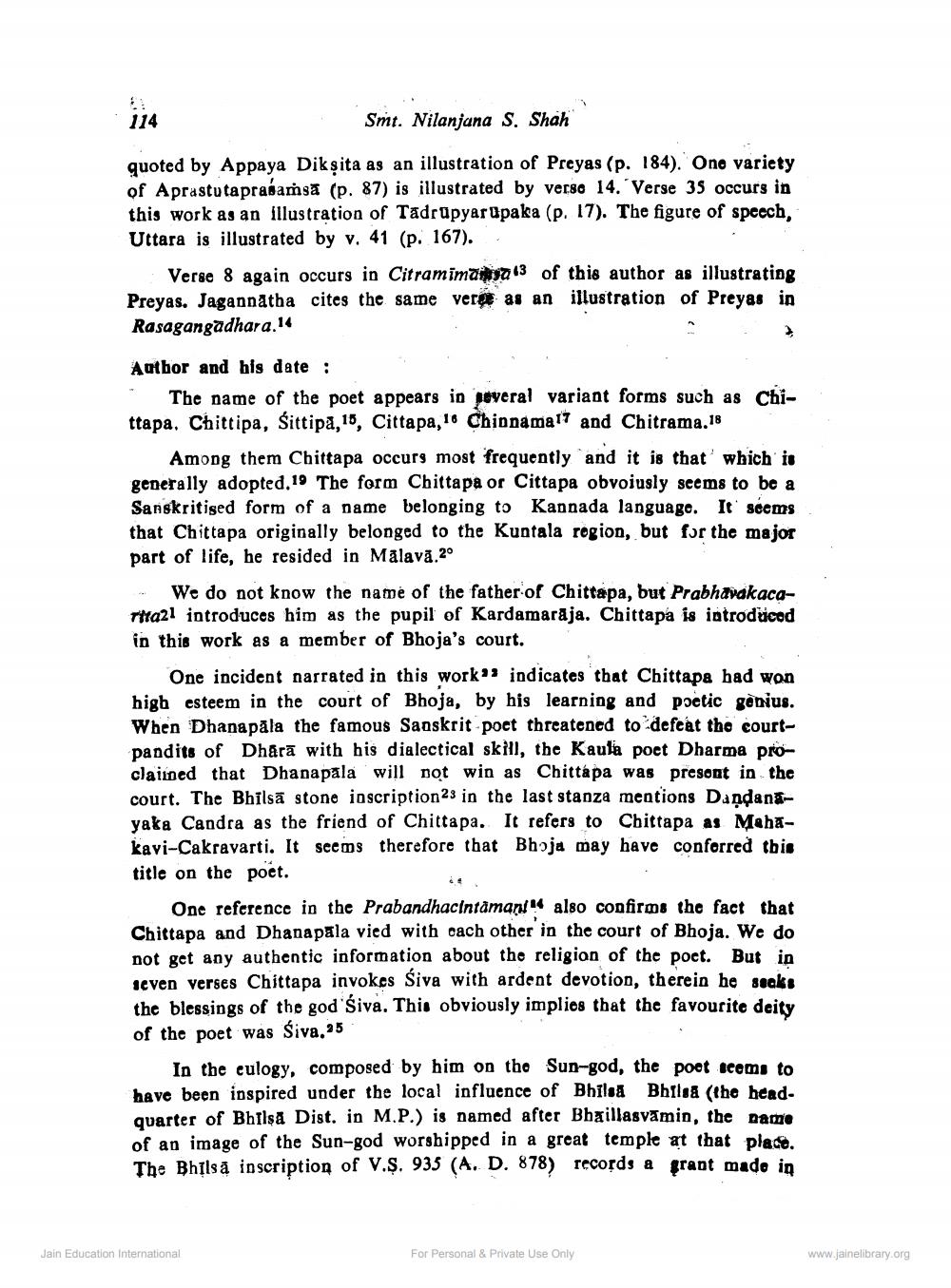________________
Smt. Nilanjana S. Shah
quoted by Appaya Diksita as an illustration of Preyas (p. 184). Ono variety of Aprastu taprabaṁsā (p. 87) is illustrated by verso 14. Verse 35 occurs in this work as an illustration of Tadrupyar Upaka (p. 17). The figure of speech, Uttara is illustrated by v. 41 (p. 167).
Verse 8 again occurs in Citramimitia 13 of this author as illustrating Preyas. Jagannatha cites the same verg as an illustration of Preyas in Rasagangadhara. 14
Author and his date :
The name of the poet appears in several variant forms such as ch ttapa, Chittipa, sittipa, 15, Cittapa, 16 Chinnamalt and Chitrama.18
Among them Chittapa occurs most frequently and it is that which is generally adopted. 19 The form Chittapa or Cittapa obvoiusly seems to be a Sanskritised form of a name belonging to Kannada language. It seems that Chittapa originally belonged to the Kuntala region, but for the major part of life, he resided in Malavä.20
- We do not know the name of the father of Chittapa, but Prabhavakacarita2l introduces him as the pupil of Kardamarāja. Chittapa is introduced in this work as a member of Bhoja's court.
One incident narrated in this work as indicates that Chittapa had won high esteem in the court of Bhoja, by his learning and poetic genius. When Dhanapala the famous Sanskrit poet threatened to defeat the courtpandits of Dhārā with his dialectical skill, the Kaula poet Dharma proclained that Dhanapala will not win as Chittapa was presont in the court. The Bhilsă stone inscription 23 in the last stanza mentions Dandanayaka Candra as the friend of Chittapa. It refers to Chittapa as Mahakavi-Cakravarti. It seems therefore that Bhoja may have conforred this title on the poet.
One reference in the Prabandhacintamani! also confirms the fact that Chittapa and Dhanapala vied with cach other in the court of Bhoja. We do not get any authentic information about the religion of the poct. But in seven verses Chittapa invokes Siva with ardent devotion, therein he seeks the blessings of the god Śiva. This obviously implies that the favourite deity of the poet was Śiva,35
In the eulogy, composed by him on the Sun--god, the poet icems to have been inspired under the local influence of Bhilsa Bhilsa (the head. quarter of Bhilsa Dist. in M.P.) is named after Bhaillasvāmin, the name of an image of the Sun-god worshipped in a great temple at that place. The BhỊlsa inscription of V.Ş. 933 (A. D. 878) records a grant made in
Jain Education International
For Personal & Private Use Only
www.jainelibrary.org




